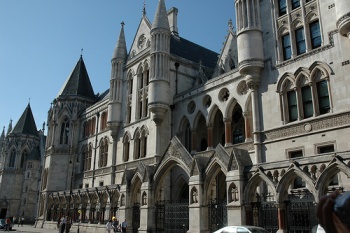BT and TalkTalk renew challenge to Digital Economy Act

BT and TalkTalk are set to appeal the findings of a judicial review of the Digital Economy Act, which dismissed the companies' claims that the law placed undue burdens on ISPs.

BT and TalkTalk are set to appeal the findings of the High Court's review of the Digital Economy Act. Photo credit: Cindy Andrie/Flickr
The Digital Economy Act (DEA) places responsibilities on ISPs for policing their networks for unlawful copyright infringement. BT and TalkTalk tried to argue that this broke various EU laws about privacy, freedom of information and the role of ISPs in copyright enforcement. The High Court rejected these claims in its judicial review findings in April, conceding only a relatively small point regarding administrative costs.
On Friday, BT and TalkTalk said they are seeking leave to appeal this decision. They plan to argue that the High Court's conclusions on various aspects of the act "were not robust enough to provide the certainty and clarity which the companies sought".
In particular, they intend to say that the act received insufficient scrutiny before being passed during the pre-election 'wash-up' period last year, and is therefore open to being challenged by a third party in the future.
"The two companies have chosen to seek an appeal on four of the five grounds addressed in the initial High Court case," the companies said. "These relate to the EU's Technical Standards Directive, the Authorisation Directive, the E-Commerce Directive and the Privacy and Electronic Communications Directive. BT and TalkTalk believe the DEA is not consistent with these directives."
The telecoms companies are not, however, returning to their claim that the act "represents a disproportionate interference with the rights of internet service providers, subscribers and internet users and with the concept of freedom of expression". They said they recognise the High Court's opinion that there is a very high threshold of proving disproportionality.
Get the latest technology news and analysis, blogs and reviews delivered directly to your inbox with ZDNet UK's newsletters.